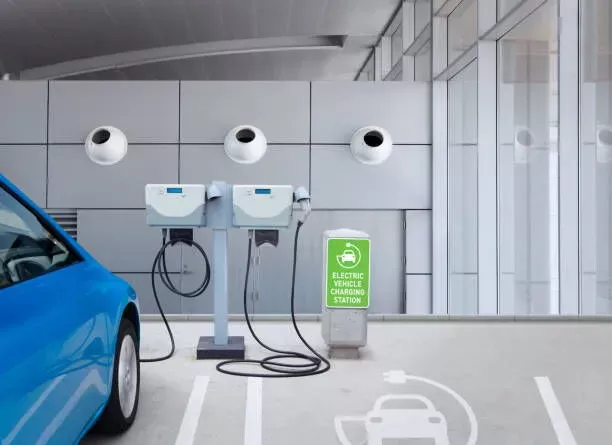Notifications

6 minutes, 27 seconds
-59 Views 0 Comments 0 Likes 0 Reviews

As electric vehicles (EVs) become increasingly popular, many homeowners want to install EV chargers for faster, more convenient charging. Among the available options, Level 2 chargers strike the perfect balance between speed and cost, making them the top choice for residential use. However, installing one isn’t as simple as plugging it in—it requires careful planning, electrical readiness, and professional expertise to ensure safety and performance.
Level 2 chargers operate on 240 volts and typically provide 10 to 60 miles of driving range per hour of charging, depending on the vehicle and charger amperage. In comparison to Level 1 chargers that use a standard 120-volt outlet and take over 24 hours to fully charge some EVs, Level 2 chargers can complete charging overnight. This makes them ideal for daily drivers and owners of EVs with large battery packs.
Because Level 2 chargers involve high-voltage electrical work, it’s critical to hire a licensed electrician for installation. A professional ensures:
Compliance with local electrical codes and safety standards
Correct wiring and breaker installation
Safe and reliable charger operation
Proper permitting and inspections, which are usually required
Working with a certified electrician protects you from costly mistakes and legal issues down the line.
Before installation, your electrician will review your electrical panel to confirm it can handle the additional load. A Level 2 charger needs a dedicated 240-volt circuit with a breaker rated between 40 and 60 amps, depending on the charger.
Many older homes or those with multiple high-powered appliances may not have enough capacity. You then have two options:
Upgrading increases your home’s amperage capacity—for example, from 100 amps to 200 amps—providing sufficient power for your charger and future needs.
Cost: $2,000–$4,000
Timeline: Several weeks to a few months
Additional Steps: Permits, coordination with utility, inspections
This option is more expensive but future-proofs your home for solar, battery storage, or additional EVs.
If upgrading isn’t feasible, load management devices are a budget-friendly alternative. They monitor your home’s power usage and automatically reduce your charger’s power draw as needed to prevent overloading.
Cost: $200–$600
Installation: Usually under 30 minutes
Benefit: Safe charging without costly upgrades
Regardless of your route, permits and inspections are almost always required. These steps ensure safety and code compliance. Many utility rebate programs also require proof of permitted and inspected installations.
Installing a Level 2 charger isn’t just about the electrical connection. Here are three important components for a safe, durable, and user-friendly setup:
Level 2 chargers are typically wall-mounted, but if your parking spot lacks a nearby wall, pedestals or stands provide sturdy, weatherproof mounting alternatives. They’re great for open driveways or detached garages.
Long cables can be tripping hazards and prone to damage. National Electrical Code (NEC) Article 625 mandates cable management systems for cords over 25 feet. Options include retractable reels, hooks, or swing arms to keep cables organized and protected.
Prevent accidental vehicle impacts with bollards, wheel stops, or guard rails. These barriers protect your charger and cables, especially in tight garages or shared parking spaces.
| Component | Typical Cost Range |
|---|---|
| Level 2 EV Charger | $400 – $1,200 |
| Professional Installation | $300 – $1,000 |
| Electrical Panel Upgrade | $2,000 – $4,000 |
| Load Management Device | $200 – $600 |
| Cable Management System | $100 – $300 |
| Mounting Stand or Pedestal | $200 – $600 |
| Permits and Inspections | $100 – $500 |
| Protective Barriers | $100 – $300 |
| Total Estimated Cost | $1,000 – $6,000+ |
Costs vary depending on your home’s electrical setup and chosen equipment.
Every home is unique. When planning your Level 2 charger installation, consider:
Your parking location and proximity to the electrical panel
The age and capacity of your current electrical system
Your EV’s charging requirements
Future plans for solar power, battery storage, or additional EVs
Consulting a licensed electrician early will help you make cost-effective, code-compliant decisions.
Installing a Level 2 EV charger at home is a smart move that enhances the convenience of EV ownership and can add value to your property. While installation involves upfront costs and planning, the benefits of faster charging, improved energy efficiency, and future readiness are well worth it.
Whether you upgrade your panel or opt for load management, and with thoughtful infrastructure choices like pedestals, cable organizers, and protective barriers, your EV charging setup will be safe, efficient, and convenient for years to come.Gotta know about Google SEO.
China EV Chargers EV Charger Manufacturer EV Charging Solutions

